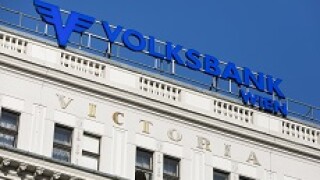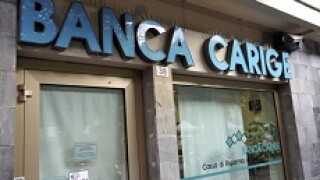-
Smaller financial institution issuers have been welcomed back to the European bond market in recent weeks, after their hopes of raising deeply subordinated capital were dashed by turbulent market conditions in late 2018. But they are not taking chances this time, seeking comfort in using the support of just one investment bank rather than a group of bookrunners.
-
Barclays’ corporate and investment bank has reached the endgame in its fight to boost returns following the departure of Tim Throsby, as group CEO Jes Staley takes control for the second time in three years.
-
Crédit Mutuel Arkéa sold a seven year non-preferred senior note on Thursday, in a market where investors are thirsty for supply. The €500m deal attracted €2bn of orders — demand that even surprised the arrangers, given that funds are still ignoring growing risks around a no-deal Brexit.
-
Citi and KBC Group led the way on Wednesday in what was a very busy day for new bond supply from financial institutions, with issuers taking advantage of stellar market conditions to raise funding ahead of reporting their first quarter earnings.
-
The final text of the covered bond directive strikes a balance that provides the flexibility to introduce new assets while defending the product’s credit quality and avoiding potential market disruption.
-
Gentlemen’s agreements seem like a quaint idea when billions of dollars are up for grabs, yet, bafflingly, the capital markets continue relying on them. It’s time to stop assuming borrowers will blindly do what financiers want when there is a cheaper, easier or more sensible option for treasuries to take.
-
Blowout books helped NIBC Bank crank in the pricing by 50bp for its first ever non-preferred senior transaction on Tuesday, with the Dutch lender eyeing a ratings upgrade as a result of its work to build out a stack of debt for the minimum requirement for own funds and eligible liabilities (MREL).
-
Banca Carige has sold one of its outstanding covered bonds back into the market as the ailing Italian lender comes into a crucial period for turning its business around and attracting buyout bids.
-
The UK’s new Brexit Bond Management Office is still preparing to issue its first notes, originally scheduled for last Friday. The Brexit-themed Gilts are sized at £36.4bn, equivalent to £350m a week over their two year maturity.
-
Forget the anti-EU politicians preparing to make gains in the upcoming European Parliament elections. Just as in the eurozone crisis, it is the incumbents holding up reform in the bloc.
© 2026 GlobalCapital, Derivia Intelligence Limited, company number 15235970, 4 Bouverie Street, London, EC4Y 8AX. Part of the Delinian group. All rights reserved.
Accessibility | Terms of Use | Privacy Policy | Modern Slavery Statement | Event Participant Terms & Conditions
Cookies Settings









